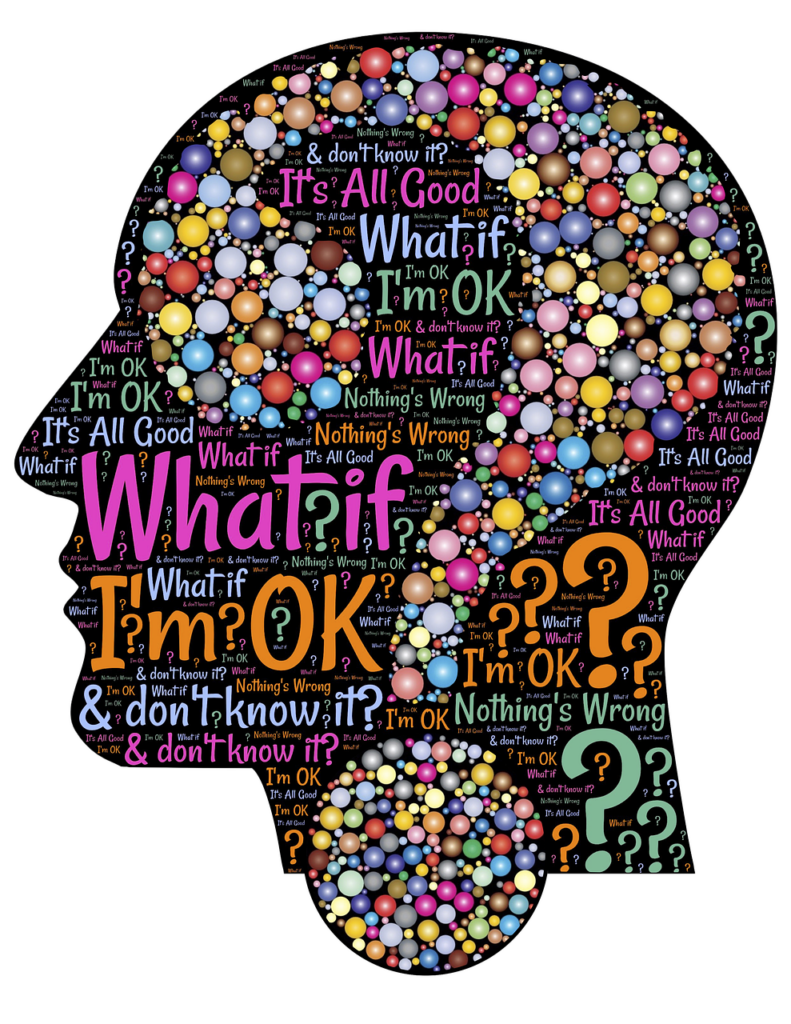Your cart is currently empty!
Emotional intelligence refers to the psychological skills and abilities involved in feeling, understanding, managing and modifying your own emotions and those of others. Emotionally intelligent is the person who is able to successfully manage their emotions to achieve positive results in relationships with others.
Intrapersonal intelligence. This involves understanding and acquiring one’s own emotions, taking them into account when making decisions, and being able to regulate one’s emotions according to the situation.
There are two basic forms of emotional intelligence:
Interpersonal intelligence. This involves understanding and comprehending the emotions of others and having the ability to react based on the other person’s state of mind.
Intrapersonal intelligence. This involves understanding and acquiring one’s own emotions, taking them into account when making decisions, and being able to regulate one’s emotions according to the situation.
Emotional intelligence plays a central role in the success or failure of all types of human relationships, from romantic and family relationships to work relationships. It is also a determining factor in the functioning of organizations, because empathy, emotional control, and motivation of people can condition teamwork, making it more or less effective and satisfying.
These skills are also important in people’s ability to convince and/or lead others. In fact, leaders tend to be emotionally intelligent people. This term was coined by psychologist Daniel Goleman.
According to Goleman , five skills make up this intelligence:
Self-knowledge, defined as the knowledge of our emotions and feelings on the one hand, and how we are influenced by them on the other.
Self-control, that is, our ability to control ourselves and prevent our emotions from overwhelming us and taking complete control over us.
Personal motivation, understood as the ability to guide our emotions to achieve our goals.
Empathy, “putting yourself in someone else’s shoes”. It is the ability to recognize the emotions of others.
Social skills. As a social being, human beings need to maintain rich and satisfying interpersonal relationships for their development.
In short, training in Emotional Intelligence will allow us to better understand our emotions and manage them, to better identify them in others, to prevent the harmful effects of intense emotions and to develop skills to generate beneficial emotions. All this will translate into a sense of well-being that will promote personal success throughout the life cycle.
“If you can put into words what you feel, it belongs to you”; from this statement, we can deduce that everything we feel and to which we cannot give a name, ends up becoming an experience foreign to our life, to our reality”
Daniel Goleman
In short, training in Emotional Intelligence will allow us to better understand our emotions and manage them, to better identify them in others, to prevent the harmful effects of intense emotions and to develop skills to generate beneficial emotions. All this will translate into a sense of well-being that will promote personal success throughout the life cycle.
“If you can put into words what you feel, it belongs to you”; from this statement, we can deduce that everything we feel and to which we cannot give a name, ends up becoming an experience foreign to our life, to our reality” Daniel Goleman

Mindfulness Meditation and Emotional Intelligence
Mindfulness Meditation, according to Jon Kabat-Zinn, is the awareness that emerges moment by moment, through the attention paid to the unfolding of the experience, with intention, in the present moment and in a non-judgmental way.
This implies adopting a mental attitude and a way of processing information that is different from the usual one.
Mindfulness Meditation, according to Jon Kabat-Zinn, is the awareness that emerges moment by moment, through the attention paid to the unfolding of the experience, with intention, in the present moment and in a non-judgmental way.
This implies adopting a mental attitude and a way of processing information that is different from the usual one.
It is a state of being that includes the suspension of evaluations and judgments regarding what we are experiencing, encouraging, at the same time, curiosity, openness and acceptance, going beyond our usual thought processes.
The practice of Mindfulness consists in observing thoughts as simple mental events, welcoming them regardless of their content and emotional intensity, without trying to change them, replace them, resolve them, but observing without judgment the events that access our consciousness.
This means not getting carried away by attempts at explanations, reasoning and not escaping from suffering, but rather recognizing it, accepting it and exploring it.
Many people tend to interpret and experience their emotions as something negative, “harmful” to be avoided or eliminated with all available strategies. This determines the activation of vicious circles that intensify and self-feed the emotional state, facilitating its maintenance.
With Mindfulness you do not change, contrast or avoid thoughts and emotions, but you change the relationship with them, learning to “ride the wave”.
You learn, therefore, to replace reactive, automatic behaviors with conscious and functional choices. The core skill, or the essential competence, to be learned is how to get out and stay out of the self-feeding and self-perpetuating cycles of automatic thoughts and negative emotions, thanks to the mental condition of “mindfulness”.
The key element is a conscious and non-judgmental attention to the present moment, which means applying pure, fluid attention, without labels, to what is, in the moment in which it is, without immediate pressure to change.
How to Manage Emotions with Music?
A significant number of recent studies highlight how listening to music acts as a self-regulator of one’s emotions. In this sense, listening to music could be used to change, maintain or reinforce emotions and moods, or to relax.
Listening to music can serve multiple functions, among which the containing one assumes particular importance. It is no coincidence that it often happens that we listen to songs we already know, probably to search for experiences we have already experienced. Other times, listening to certain songs allows us to “recall” nostalgic moments, and still others, music represents a sort of “escape”, and allows a detachment from reality, even if only momentarily.
The origins of music therapy can be traced back to the 1950s, when doctors and psychiatrists from various parts of the world (including Benenzon in Argentina, Wigram in Great Britain and Lecourt in France) began to take an interest in the possible involvement of the clinical role of music in the therapeutic process (Scarso et al., 1998). The idea that music could be included in a variety of multidisciplinary interventions began to gain ground (Parenti, 1983), in order to achieve various objectives, including:
- acquiring psychomotor (or intellectual) skills;
- facilitating interpersonal relationships by encouraging the use of non-verbal language;
- improving insight skills;
- containing one’s emotional experiences;
- improving the expressiveness of the bodily Self.
Music therapy uses music to facilitate and promote mental, physical and emotional well-being. Since it is a universal language capable of evoking a wide range of emotions, it becomes a powerful tool to help identify and explore what you feel.
Listening to different genres brings out feelings of joy, sadness, fear or anger, giving you the opportunity to recognize and accept them. In addition, it allows you to learn not only to recognize emotions, but above all to express them in a constructive way.
Playing or singing serves as a safe outlet for the expression of your feelings, especially for emotions that can be difficult to put into words. The process of creation and expression helps you better understand what you feel and communicate it effectively to others. You should also know that it becomes a support: the relaxing effect works by reducing stress and anxiety.
Music therapy: an emotional language that unites everyone
Have you ever heard a melody that made you tap your foot unconsciously or a song that brought tears to your eyes? This is the magic of music, a universal language that touches the heartstrings of everyone, from children to adults.
It is not only a background to our daily life or an accompaniment to our moments of leisure, it even has the power to make us feel good on a physical and emotional level.
For adults, it offers a safe haven to explore feelings often walled up behind the facades of daily composure. It can help manage stress, fight depression and deal with trauma, providing a way to express emotions non-verbally.
For children, it becomes a playful but deeply effective means to improve social, communication and cognitive skills. Through activities including singing, playing instruments and listening, the little ones learn to interpret the emotional and social language that surrounds them, acquiring tools for healthy and balanced growth.
So, whether it is about rediscovering one’s inner voice as adults or providing children with a stimulating environment to grow, music therapy proves to be a precious ally, which with sweetness and depth transforms music into medicine for the soul. All generations can benefit from this sweet alchemy of notes and rhythms, which opens new doors to self-understanding and emotional integration.
Managing emotions with meditation and music therapy
Through the combination of meditative practices and music therapy, in our Qui ed Ora center we train our ability to observe the mind and to lovingly welcome emotions to develop true love for ourselves, that is, love for the aspects of ourselves that we do not love, that we hide, that we try to forget, that we deny and fight.







